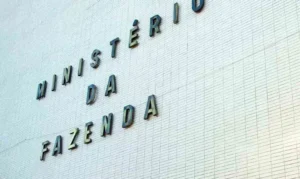With regulation, what are the next steps for the betting sector?

Written by :
Heloisa Vasconcelos

President Luiz Inácio Lula da Silva sanctioned Law No. 14,790 last Saturday (30), which regulates fixed-odds betting in national territory.
The text was approved with vetoes , including the removal of the tax exemption bracket for bettors, who will pay 15% in taxes on any prizes received.
The law has already come into force, but some points can still be changed or must be defined through ordinances.
The National Congress has a period of 30 calendar days to evaluate the vetoes, with the possibility of overturning them until February 1st .
Although legislation on the subject has already been approved, the regulation of sports betting in Brazil still depends on the issuance of regulatory ordinances by the Ministry of Finance.
Until the Ministry of Finance issues ordinances with more details on tax collection, for example, neither companies nor bettors will need to pay taxes.
Veto override
The President’s vetoes to paragraphs 1, 2 and 3 of article 31 of the law are a cause for concern for the sports betting sector in Brazil. This section deals with taxation of bettors.
Udo Seckelmann, a lawyer specializing in sports and betting at the Bichara e Motta law firm, highlights that if the veto is maintained, the sector will lose profitability.
![]()
“ There is a lot of expectation in the sector about this point, which will certainly be crucial for the health of our market. ”
Udo SeckelmannLawyer specializing in sports and betting at Bichara e Motta
The founding partner of the Jantalia Advogados law firm and specialist in gaming law, Fabiano Jantalia, explains that the overturning of the vetoes requires an absolute majority in Congress, requiring the evaluation of deputies and senators.
“For this veto to be overturned, there must be an absolute majority of the members of the house, that is, 257 votes against the veto would be needed. If this 30-day deadline is not met, it will postpone the rest of the agenda of the National Congress,” he says.
For him, it is difficult to state whether or not parliamentarians are likely to overturn the vetoes. The issuing of normative acts by the Ministry of Finance should bring more clarity to this analysis.
“Once these acts are published and the regime and calculation method are clearer, it will be possible to better assess what these vetoes will be like,” he emphasizes.
He considers that the fact that the 15% tax rate for bettors was maintained and not 30%, as was previously the case, is already a positive point.
Normative ordinances
Law No. 14,790 sets out the general rules for the betting sector in Brazil, but the specifics of how it will operate will be handled by the Ministry of Finance.
Jantalia states that the ministry must still issue ordinances on cybersecurity, responsible gaming , gamblers’ rights, advertising and, mainly, on taxation issues.
From this point on, the Ministry must issue an act authorizing companies that want to operate in Brazil.
The Ministry of Finance has a period of up to six months to adapt betting houses that are operating in Brazil.
In other words, by the end of June, companies must be regularized to operate in national territory.
![]()
“ Betters and bookmakers will only be subject to taxes when the activity actually begins in Brazil. ”
Fabiano JantaliaFounding partner of Jantalia Advogados
It is also only after the publication of an ordinance on advertising that it will be illegal to broadcast advertisements for betting houses without a Brazilian license.
For Udo Seckelmann, defining the specificities of the regulation through ordinances is the correct procedure.
“Making legislation much stricter is something that is more difficult to change in the future, while the regulator’s administrative acts can be reviewed more easily and more frequently,” he says.
